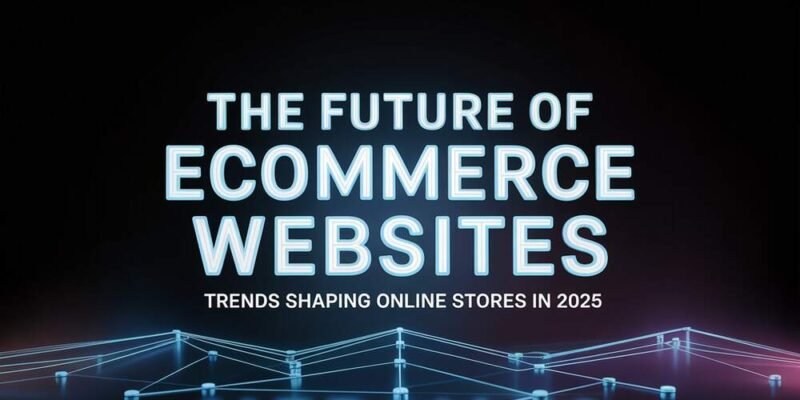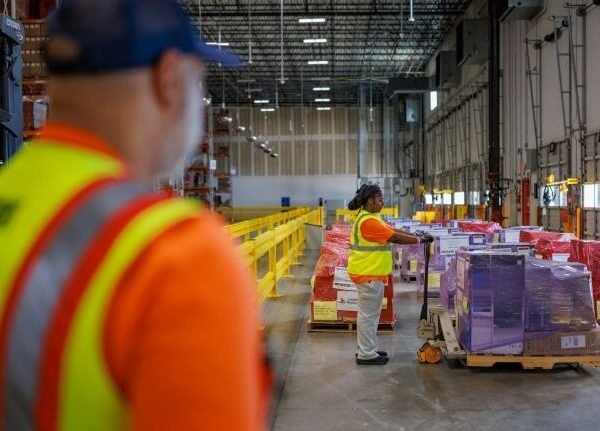As we enter deeper into the digital age, eCommerce continues to evolve at an extraordinary pace. In 2025, the online shopping experience is expected to become more immersive, intelligent, and user-centric than ever before. With advancements in technology, consumer behavior, and digital infrastructure, businesses must keep up or risk falling behind.
For companies looking to scale their online presence, partnering with an expert Web Development Company or opting to hire PHP developers in India has never been more crucial. These professionals are equipped to build next-generation eCommerce platforms that not only look great but also perform seamlessly across devices and channels.
Let’s explore the top trends shaping the future of eCommerce websites in 2025—and how businesses can adapt to remain competitive.
AI-Powered Personalization
Artificial Intelligence (AI) is revolutionizing how online stores interact with users. In 2025, Personalization will go beyond the “recommended for you” sections. AI engines will analyze browsing history, purchase behavior, location, and even weather data to offer real-time product suggestions, personalized deals, and chat-based support.
When you work with a modern Web Development Company, you can integrate advanced AI features into your website, from intelligent product recommendations to voice-based search functions.
Progressive Web Apps (PWAs)
PWAs are web applications that behave like native mobile apps. They load faster, work offline, and provide a seamless user experience across all devices. In 2025, more e-commerce brands are shifting toward Progressive Web Applications (PWAs) to meet user expectations for speed and usability.
PWAs built with PHP frameworks, such as Laravel or Symfony, allow for custom functionality, which is why many businesses are choosing to hire PHP developers in India to design and deploy high-performance e-commerce solutions.
Voice Commerce
With the rise of voice-activated devices like Alexa, Google Assistant, and Siri, voice commerce is rapidly becoming a mainstream phenomenon. Shoppers are now searching for products, checking delivery statuses, and placing orders using voice commands.
In 2025, eCommerce websites need to be optimized for voice search. This involves changes to both front-end and backend development—areas where experienced developers from a leading Web Development Company can offer immense value.
Mobile-First Design and Instant Checkout
Mobile commerce is expected to account for over 75% of all eCommerce sales by 2025. As such, mobile-first design is no longer optional—it’s essential. This includes responsive layouts, touch-friendly navigation, and lightning-fast load times.
Additionally, simplifying the checkout process is a significant focus. Features such as:
- One-tap payments
- Biometric authentication
- Digital wallets
will dominate the e-commerce landscape.
To achieve these goals, businesses often hire PHP developers in India to create mobile-optimized shopping experiences that convert visitors into buyers.
Augmented Reality (AR) Shopping
AR technology is allowing customers to “try before they buy,” whether it’s placing virtual furniture in their room or trying on clothes digitally. By 2025, this feature will become a standard on e-commerce platforms, particularly in industries such as fashion, home décor, and beauty.
Implementing AR requires specialized development and integrations. A forward-thinking Web Development Company can help you embed AR capabilities directly into your product pages or mobile apps.
Enhanced Security and Privacy
With the rise in online transactions comes increased concern about security. In 2025, eCommerce websites must be equipped with robust cybersecurity features such as:
- SSL encryption
- Two-factor authentication
- GDPR-compliant data handling
When you hire PHP developers in India, ensure they are well-versed in secure coding practices and data protection protocols to safeguard customer information.
Headless Commerce Architecture
Headless commerce decouples the front end of an eCommerce site from its backend, allowing businesses to update or redesign their interfaces without affecting core functionalities. This flexibility is invaluable in a fast-paced digital environment where brands need to pivot quickly.
Developers familiar with headless systems—often found in top-tier Web Development Companies—can implement this architecture using PHP backends with front-end frameworks like React or Vue.js.
Sustainability and Ethical Shopping
Today’s consumers are becoming increasingly conscious of their purchasing decisions. They want to know where products come from, how they’re made, and the environmental impact of shipping. In 2025, e-commerce platforms will incorporate features such as:
- Carbon offset calculators
- Sustainable badges
- Transparency reports
Tech-savvy developers can seamlessly integrate these elements into your platform, ensuring both optimal performance and aesthetic appeal.
Subscription-Based Models and Loyalty Programs
Recurring revenue from subscriptions or memberships is expected to continue growing. Customers appreciate the convenience, and brands benefit from the predictable income. Loyalty programs powered by AI and gamification will also become more sophisticated.
Partnering with a Web Development Company that understands how to implement these models can result in better user engagement and higher customer lifetime value.
Conclusion
The future of eCommerce is fast, intelligent, and highly personalized. In 2025, success will belong to businesses that invest in modern technologies and deliver exceptional online shopping experiences.
To stay ahead of these trends, it’s essential to work with experts who can bring your vision to life. A reliable Web Development Company can help you craft custom solutions tailored to your goals. For businesses seeking to optimize costs without compromising quality, hiring PHP developers in India remains a strategic advantage.
As digital commerce continues to evolve, the right development partner can help you adapt, innovate, and grow—ensuring your store is ready for the future.
Do Read: From Walmart’s SEO Collapse in Canada to Columbia, SC: What Big Brands Keep Getting Wrong













